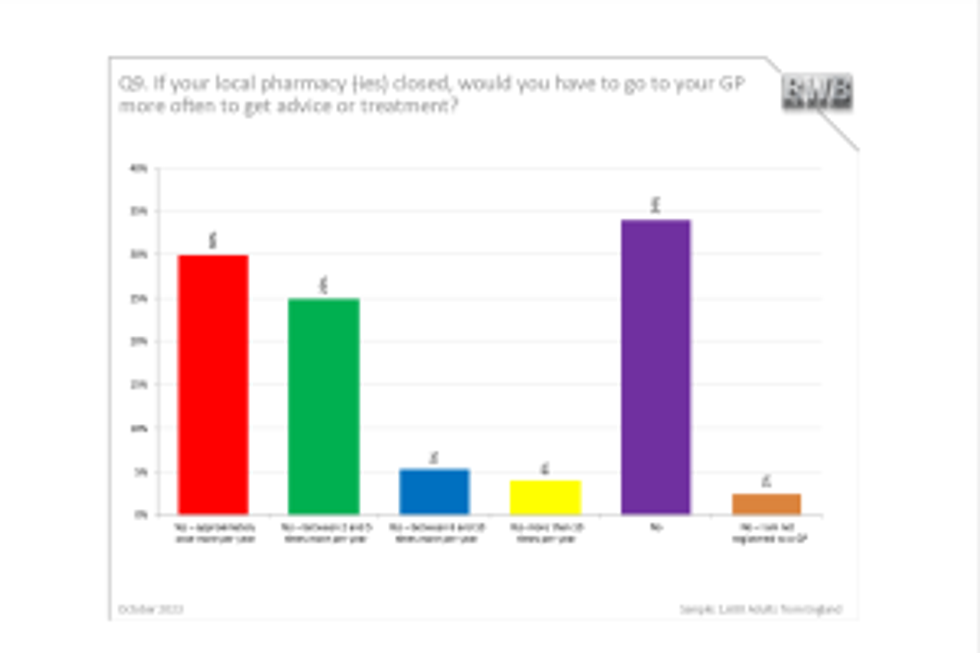A substantial, sustained new funding is needed to keep pharmacy doors open and keep pressure off the NHS
A survey by the National Pharmacy Association (NPA) has highlighted the impact of widespread pharmacy closures in England, which is likely to increase the demand for general practice (GP) appointments by millions.
Over a thousand pharmacies have been closed in England since 2017, with about 10,700 remaining open now.
Currently, GP provides approximately 300 million patient consultations each year, but their demand is set to grow by millions if pharmacies continue to disappear.
In the NPA survey, 64 per cent of UK adults said they would go to their GP more often for advice and treatment if their local pharmacies closed.
A third (34 per cent) of the respondents said they would visit their doctor at least twice more each year, including some who would go on more than 10 extra occasions.
This means there could be between 69 million and 100 million more GP appointments, if all “local” pharmacies in England were to close, the survey suggested.
Nick Kaye, Chair of the NPA, said: “The wait to see your GP or even A&E will inevitably grow if the pharmacy network continues to shrink. Pharmacies currently advise and treat millions of people a year who would otherwise go to their doctor. Patients are the biggest losers from pharmacy closures, having to make longer journeys and waiting longer for treatment, or missing out altogether.
“The government and NHS need to inject substantial, sustained new funding into community pharmacy, to keep pharmacy doors open and keep pressure off other parts of the NHS.”
The associated also cited a 2020 study by Ernst and Young (EY) which predicted that 72 per cent of family-owned pharmacies could be loss making by the end of 2024 if the current funding arrangements remain unchanged.
The Pharmacy First service, which is due to begin across England in late January 2024, is likely to make life easier for patients as well as reduce pressure in the NHS.
The advanced service is designed to improve access to primary care by allowing pharmacists to provide NHS advice and treatments for common ailments like sore throat, shingles and urinary tract infections without the patient needing to visit their GP for a prescription.














